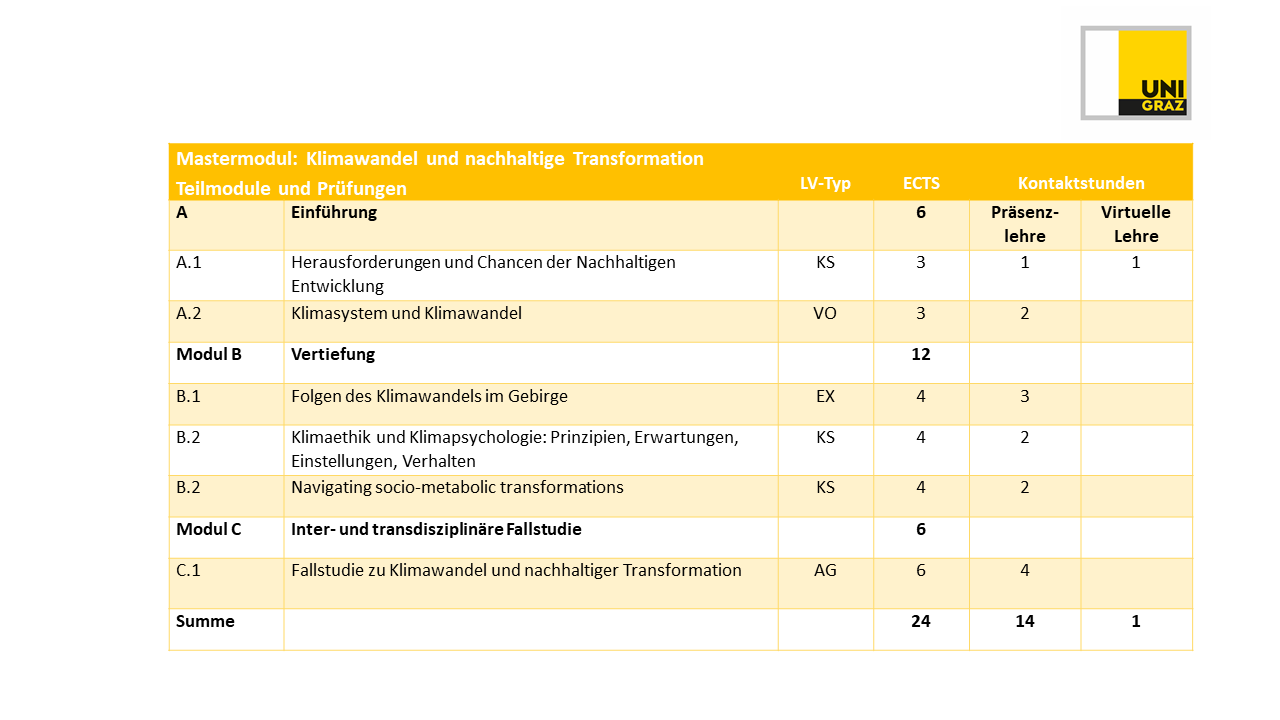The first step to a job with social responsibility!
Switching to cycling or public transport, saving electricity, avoiding waste, shopping more consciously and much more – climate protection starts in the private sphere and affects every one of us all around the globe! In view of the looming climate crisis, sustainable and future-proof solutions are more in demand than ever – and for this, more than ever, many clever minds are needed!
The module “Climate change and sustainable transformation” offers you a scientifically based additional training that prepares you for a green job, no matter in which field – economic, legal, financial, social or creative.
Courses & Skills
No matter what subject you are studying, in this module you will gain a basic understanding of the uncertainties, risks and opportunities associated with climate change: possible approaches to sustainable transformation will be developed here, with particular emphasis on connectivity with the content of your own field of study. Finally, it is also about combining different approaches and strategies in an inter- and transdisciplinary way and therefore initiating an interdisciplinary dialogue, as well as a mutual learning process between science and society.
Introduction |
|
Advanced |
|
Inter- and transdisciplinary case study |
|
FAQs
Unfortunately, you cannot choose this master’s module as a student of the following subject-relevant master’s degree programmes:
- Environmental Systems Sciences / Sustainability and Innovation Management
- Environmental Systems Sciences/Geography and Applied Human-Environment Research
- Environmental Systems Sciences/Economics
- Environmental System Sciences / Climate Change and Environmental Technology
- Joint International Master’s Programme in Sustainable Development
- International Master’s Programme on Circular Economy
- Global Studies – Fachschwerpunkt Wirtschaft und Umwelt
As a student of these relevant Master's programs, however, the other Master's modules are available to you: Information
You can choose the master’s module as a student of any master’s or diploma programme within the scope of your free elective courses. In the following master’s programmes, the module is also incorporated in the curriculum:
- Religion Culture Society
- Slavic Languages, Literary and Cultural Studies
- Inclusive Education
- Sports Science and Kinesiology
- Gender Studies
- Global Studies – Specialization: Law and Politics
- Global Studies – Specialization: Economy and Environment
- Global Studies – Specialization: Society and Culture
- Environmental Systems Sciences / Climate Change and Transformation Science

![[Translate to English:] Fotoquelle: Jake Tazreiter [Translate to English:] Fotoquelle: Jake Tazreiter](https://static.uni-graz.at/fileadmin/_processed_/3/5/csm_KatharinaRogenhofer_Credit_Jake_Tazreiter_27df0c79c2.jpg)
